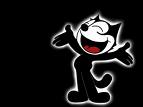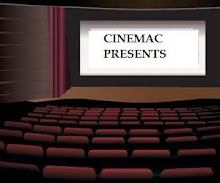High Noon
(06/02/2004)
Released in the United States on July 30, 1952, "High Noon" is a classic American western of the postwar period, one of the best movies of all time Its director Fred Zinnemann, producer Stanley Kramer and writer Carl Foreman. It is an original movie that deals with topics such as ethics and morality. A masterpiece of cinema, possibly the best "western" ever made. It is presented as a "western" tense which tells the story of a man who, despite his integrity and sense of justice, is not understood by people of his community. The characters undergo psychological dramas and consciousness, society is selfish and cowardly, and shows based on false concepts of solidarity and self-interest. "Western" is a genre specifically American, which operates mainly landmarks like the Civil War and the Conquest of the West. It is characterized traditionally by presenting a simple narrative scheme, an intense episodic action and a peculiar physical and human landscape. In addition to having inherent values of rhythm and movement, requires a universality to create a kind of mythological hero whose life is to fight for justice. The "good guy" is usually represented by the cowboy or the lonely sheriff, fearless and righteous that challenges the "bad guy" or out-of-law. In "High Noon" the genre is more intellectual. With three main story lines: the story of the relationship of Will Kane (Gary Cooper) and Frank Miller (Ian MacDoanld) where the past comes the present and results in a threatening display of an ancient drama, the story of Kane and Amy and their marriage interrupted by men from the past, the history of the Sheriff Kane with the population of Hadleyville, which doesn't gives him the moral support that he so desperately needed in their fight against Miller. The Cooper's hero spends almost the entire movie for help addressing possible aid and also refusing it. The scene of the church is the moral center of the film when Kane will ask for assistance.The first cooperation is given by the pastor who begins to read a text from the Bible, Malachi IV, which predicts the fatal destiny of the "superb" and "evil" in the day that "burn as an oven," condemning Kane for his lack of commitment to the church. The villains of "High Noon" provides a perfect rhythmic foundation and stand out strongly at the beginning and end of the movie. The reckoning at noon (high noon) is the result of what happened in Hadleyville's past five years ago when Kane took Miller to the court for a crime that earned him a life sentence. The action of "High Noon" runs in real time, starts at 10:40 hours and walks up to the minute at noon. John Wayne once declared that "High Noon" was the largest anti-American film ever made.Wayne was apparently offended by the end of the film that shows the sheriff removing his badge and tossing it out.
"High Noon" received top billing in 1952 and won several awards such as Best Picture and Director (Fred Zinnemann ) by the Film Critics New York; four Golden Globes, in the following categories: Best Actor - Drama (Gary Cooper), Best Supporting Actress (Katy Jurado), Best Cinematography - Black and White and Best Soundtrack; the Award of Bodil Best American Film, in 1953, won four Oscars: Best Actor (Gary Cooper), Best Editing (Harry Gerstad and Elmo Williams), Best Soundtrack (Dimitri Tiomkin) and Best Song (Do Not Forsake Me, Oh My Darling) (Ned Washington). It is an essential film, helped to consolidate the career of the super-star Gary Cooper, has highlighted the beautiful actress Grace Kelly (who played her first major role) and Zinnemann confirmed as one of the most celebrated filmmakers in the world.
Released in the United States on July 30, 1952, "High Noon" is a classic American western of the postwar period, one of the best movies of all time Its director Fred Zinnemann, producer Stanley Kramer and writer Carl Foreman. It is an original movie that deals with topics such as ethics and morality. A masterpiece of cinema, possibly the best "western" ever made. It is presented as a "western" tense which tells the story of a man who, despite his integrity and sense of justice, is not understood by people of his community. The characters undergo psychological dramas and consciousness, society is selfish and cowardly, and shows based on false concepts of solidarity and self-interest. "Western" is a genre specifically American, which operates mainly landmarks like the Civil War and the Conquest of the West. It is characterized traditionally by presenting a simple narrative scheme, an intense episodic action and a peculiar physical and human landscape. In addition to having inherent values of rhythm and movement, requires a universality to create a kind of mythological hero whose life is to fight for justice. The "good guy" is usually represented by the cowboy or the lonely sheriff, fearless and righteous that challenges the "bad guy" or out-of-law. In "High Noon" the genre is more intellectual. With three main story lines: the story of the relationship of Will Kane (Gary Cooper) and Frank Miller (Ian MacDoanld) where the past comes the present and results in a threatening display of an ancient drama, the story of Kane and Amy and their marriage interrupted by men from the past, the history of the Sheriff Kane with the population of Hadleyville, which doesn't gives him the moral support that he so desperately needed in their fight against Miller. The Cooper's hero spends almost the entire movie for help addressing possible aid and also refusing it. The scene of the church is the moral center of the film when Kane will ask for assistance.The first cooperation is given by the pastor who begins to read a text from the Bible, Malachi IV, which predicts the fatal destiny of the "superb" and "evil" in the day that "burn as an oven," condemning Kane for his lack of commitment to the church. The villains of "High Noon" provides a perfect rhythmic foundation and stand out strongly at the beginning and end of the movie. The reckoning at noon (high noon) is the result of what happened in Hadleyville's past five years ago when Kane took Miller to the court for a crime that earned him a life sentence. The action of "High Noon" runs in real time, starts at 10:40 hours and walks up to the minute at noon. John Wayne once declared that "High Noon" was the largest anti-American film ever made.Wayne was apparently offended by the end of the film that shows the sheriff removing his badge and tossing it out.
"High Noon" received top billing in 1952 and won several awards such as Best Picture and Director (Fred Zinnemann ) by the Film Critics New York; four Golden Globes, in the following categories: Best Actor - Drama (Gary Cooper), Best Supporting Actress (Katy Jurado), Best Cinematography - Black and White and Best Soundtrack; the Award of Bodil Best American Film, in 1953, won four Oscars: Best Actor (Gary Cooper), Best Editing (Harry Gerstad and Elmo Williams), Best Soundtrack (Dimitri Tiomkin) and Best Song (Do Not Forsake Me, Oh My Darling) (Ned Washington). It is an essential film, helped to consolidate the career of the super-star Gary Cooper, has highlighted the beautiful actress Grace Kelly (who played her first major role) and Zinnemann confirmed as one of the most celebrated filmmakers in the world.
SYNOPSIS: One Sunday morning in the late nineteenth century, Will Kane, the sheriff resigning from the town of Hadleyville, the western United States, is married to Amy, and go with her to begin a new life elsewhere. That's when news arrives that Frank Miller, the criminal that Kane had sent to jail for the rest of his life, he earned a parole after serving five years and is worth the noon train to run the threat of revenge made in the past . He is supported by three accomplices who are already in town. The sheriff, in principle, is persuaded to depart as planned, but decides to return, even if the bride does not support him to face Miller. Amy leaves him and takes the train that will take her back home in St. Louis. From there, the sheriff tries to recruit new staff, but the population fearful, hypocritical and even, in part, elated, let him alone with his fate. After writing his will, he meets the gang in a deadly game of hide and seek in the empty streets of the tow. Hearing the first shot when she takes the train, Amy changes her mind and go back; putting aside her principles, she shoots a bad guy in the back and kills him. Helped by Amy later, which was taken hostage, Kane can win the duel with Miller.The sheriff removes his badge and toss it out. He lives the town with Amy as the villages gather dumbfounded and embarrassed.
High Noon
USA/1952
Director: Fred Zinnemann
Starring: Gary Cooper, Thomas Mitchell, Lloyd Bridges, Katy Jurado, Grace Kelly, Ian MacDonald, Lee Van Cleef.
United Artists Corporation
Western/85 minutes.
High Noon
USA/1952
Director: Fred Zinnemann
Starring: Gary Cooper, Thomas Mitchell, Lloyd Bridges, Katy Jurado, Grace Kelly, Ian MacDonald, Lee Van Cleef.
United Artists Corporation
Western/85 minutes.









No comments:
Post a Comment